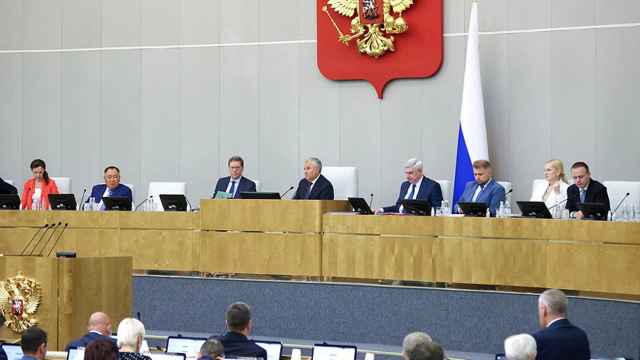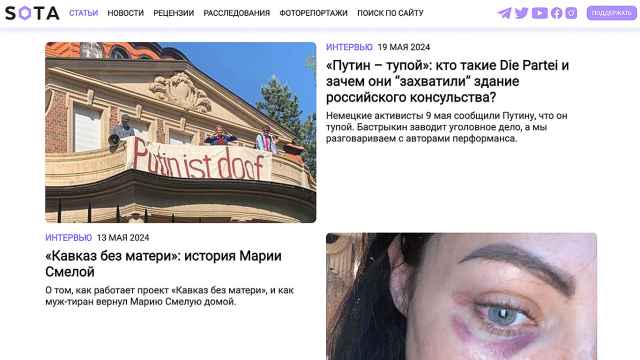Russia authorities have designated the U.S.-funded Radio Free Europe/Radio Liberty (RFE/RL) news outlet as an “undesirable” organization.
The outlet appeared in the Justice Ministry’s database of “undesirable” organizations on Tuesday, making it the latest news organization to be blacklisted in Russia amid a sweeping crackdown on independent journalism that has dramatically intensified since Moscow invaded Ukraine in 2022.
The “undesirable” designation bans RFE/RL's work inside Russia, puts staff members at risk of jail time and criminalizes engagement with the outlet, including sharing its content online.
Organizations labeled “undesirable” must cease all operations inside Russia, and it is illegal for individuals and media outlets in Russia to republish or share their content.
The United States said that the ban on RFE/RL shows Moscow's efforts to deny open information.
"It is quite clear that they do not want their people to have information about what the Russian regime does abroad, what the Russian regime does to its own people," State Department spokesman Matthew Miller told reporters.
Among RFE/RL’s employees still inside Russia is journalist Alsu Kurmasheva, who was arrested in October for failing to register as a “foreign agent,” and then later for spreading "false information" about the war in Ukraine
Kurmasheva is currently being held in pre-trial detention in the city of Kazan, and it is unclear how her employer’s new “undesirable” status may impact her.
In 2017, RFE/RL was labeled by the Russian authorities as a “foreign agent,” which carries negative Soviet-era connotations, but the outlet rejected the designation and refused to comply with the requirement to label its materials.
RFE/RL operates in 27 languages in 23 countries, mainly where media freedom is limited.
Russia introduced its “undesirable” list in 2015 to crack down on foreign NGOs and ban Russians from working with or donating to them.
Authorities have since used the law on “undesirable” organizations to target independent news outlets, human rights groups, environmental organizations and educational institutions.
Russian officials have told The Moscow Times on condition of anonymity that the Kremlin is taking a harder line toward media outlets critical of its invasion ahead of the March presidential election.
A Message from The Moscow Times:
Dear readers,
We are facing unprecedented challenges. Russia's Prosecutor General's Office has designated The Moscow Times as an "undesirable" organization, criminalizing our work and putting our staff at risk of prosecution. This follows our earlier unjust labeling as a "foreign agent."
These actions are direct attempts to silence independent journalism in Russia. The authorities claim our work "discredits the decisions of the Russian leadership." We see things differently: we strive to provide accurate, unbiased reporting on Russia.
We, the journalists of The Moscow Times, refuse to be silenced. But to continue our work, we need your help.
Your support, no matter how small, makes a world of difference. If you can, please support us monthly starting from just $2. It's quick to set up, and every contribution makes a significant impact.
By supporting The Moscow Times, you're defending open, independent journalism in the face of repression. Thank you for standing with us.
Remind me later.






